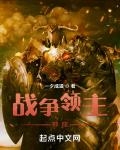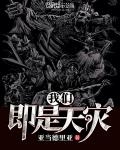Chapter 133 The Way of the Capitalists
There are now five hundred more elderly people in the territory, whom Roland brought back from Serenmis Village.
Anson has also brought his team back, but the people he brought back are basically the poor and the proletarians who came here because they heard that the tax rate in Maixiangling was low. They are mostly young and strong, and there are about a hundred of them.
The three prophets did not bring harm to other villages. Instead, it was the extremely high taxes imposed by those unscrupulous nobles that harmed many civilians - for example, some knights of Erminede could collect 70% of the grain tax!
Maixiangling, which only charges 30% tax, is a paradise in their eyes. If it weren't for the good weather this year, there would probably be more people coming here.
Merchants no longer engage in human trade. Due to the existence of transportation companies, many merchants have discovered new foreign trade opportunities and have begun to follow transport teams on long-distance trips - after all, being a human trafficker is not a very nice thing to do, and they have also discovered that the cost of transporting people is greater than they imagined.
So Li Ang also stopped the policy of purchasing people and switched to publicity.
It will take some time for the transport company to gain full recognition from all merchants, but most merchants are already following the transport team, taking advantage of the team's protection along the way.
This is actually a good thing. As long as the merchants follow up a few more times and confirm that the transport team will not embezzle and turn into robbers, they will start to consider the cost issue and gradually stop supporting the fleet on their own.
In fact, a few businessmen have already sold their carriages and coachmen in packages to Changhe Express Company.
The overall development seems to be going smoothly.
Today, Maixiangling has a population of 1,200 people, and they are reclaiming a large amount of wasteland.
The lord really has no idea about farming. He has never farmed before, let alone in the Middle Ages...
However, not knowing how to farm does not mean you cannot engage in agriculture.
As long as agricultural production is transformed into corporate logic, the lord can still do it!
People in the continent of Pendor sometimes, like modern people, have misunderstandings about various production capacities and often make some strange comparisons.
For example, if there are two counties, one with an average yield of 100 pounds per mu and the other with an average yield of 200 pounds per mu, everyone would think that the former is too weak and is simply a primitive society.
Then they all expressed how advanced the latter was, how we should cultivate the land more carefully, how we should improve tools, etc.
But in reality, in a county where the yield is 100 pounds per acre, the average cultivated area per capita is likely to be 50 acres.
In a county with an output of 200 mu, the per capita cultivated area may be less than five mu.
If the population difference is not too great, which county has a higher total output?
The latter is indeed meticulously cultivated and technologically advanced - but it's not necessarily that the former won't use these technologies, but that they can't use them.
In this era without large machinery, it is impossible for one person to cultivate 50 acres of land and do intensive farming.
Only when per capita resources are scarce will we be forced to build a temple in a snail shell . There are too many people and too little land, so we have no choice but to do it.
The lord does not know how to farm and cannot increase the yield of his territory in a short period of time.
But now he has a large amount of grain seeds in his hands, and there are countless unowned wastelands around the territory. In a situation where there are more land and fewer people, the lord can use large-scale farming to increase the overall output.
Therefore, Li Ang’s logic is to plant in large quantities and increase the yield by using the area!
Moreover, the old people brought back by Roland and the destitute people brought back by Anson were all experienced farmers who knew how to work.
The lord only needs to provide them with seeds, tools and wasteland.
In fact, even the tools only provide raw materials. There are carpenters and blacksmiths in the territory, and many elderly people also have some technical skills and can make many farm tools.
In fact, these so-called elderly people are not old in the eyes of modern people - most of them are only in their fifties.
But in this era, this really means that half of the body is buried in the soil.
Li Ang did not distribute shares to these newcomers again - if there were too many shares, they would become worthless.
He used another method.
In order to avoid unfairness and improve efficiency, the lord issued a rare policy.
In other words, it is a policy that people here have never seen before, the 'group responsibility system'.
To put it simply, it means grouping several young people and several old people into a group in the same proportion, so that the age structure is generally the same.
After grouping, each group consisted of six young and strong people and four elderly people, two of whom were women.
This group is considered a basic production unit, and all production is measured in groups, not individuals.
This is of course a medium- to short-term strategy, and it is mainly intended to cope with the current situation where the only people left are single men, except for the elderly living alone.
Young and strong people can be responsible for various heavy work.
The elderly pass on their work experience to the young people and take on those relatively easy but patience-requiring chores, such as selecting seeds and weaving ropes.
In this way, young and old will be grouped together to cultivate the land, and taxes will be collected on a group basis.
This is of course for the purpose of complementarity, but also to properly utilize all labor to improve overall efficiency.
This policy quickly made Maixiangling a place where the population age structure seemed relatively normal.
In fact, the continent of Pandor has never had much respect for the elderly - the main reason, of course, is that the elderly are old and weak and cannot bear high-intensity labor.
In fact, even in modern times, many places are still like this...
In fact, this is mainly because the way jobs are evaluated is too elementary.
The nobles only see the surface - of course, most of the unsophisticated capitalists do the same.
For example, only young people can be conscripted as soldiers and do hard labor. Only young people can work overtime and do repetitive labor, while the consumption of the elderly is not much less than that of the young.
But this is all superficial...
What is not seen is that the experience that the elderly have can help you avoid pitfalls and greatly improve efficiency. In fact, in most industries, one experienced old employee is worth ten green hands.
But the problem is that these experiences are invisible, and it is difficult to make a purely quantitative assessment.
Because any work requires design and planning.
However, 'design' and 'planning' cannot be evaluated.
For example, it is like farming - what to plant, how to use, which tools to use, how many stages to divide, how to fertilize, how to prevent pests, these are all design plans, which rely on experience and knowledge. The process is the specific execution, which requires physical strength.
Even if it is hard labor, such as carrying sacks, how to carry it, whether tools can be used, what tools to use, and what route to take are all designs and plans, and the process of carrying is the specific implementation.
This kind of broad design and planning is usually invisible, and its actual effect cannot be evaluated. After all, nobles and bureaucrats usually do not consider specific matters.
The nobles could only see the representatives implementing those things specifically - who looked stronger, who could work overtime, who was more obedient, and who asked for less.
Then, they will use the logic of quantifying individual goals to evaluate each person's output.
After all, farming in this day and age is mostly individual labor, and teamwork is almost non-existent.
If quantified by individual goals, the disadvantages of the elderly become even more obvious - because of their lack of physical strength, they cannot keep up with the specific implementation process.
Therefore, most of the time, when people evaluate a noble territory, they look at how many young and strong people there are in the territory... the elderly are basically regarded as a burden.
Even in modern times, most capitalists only want young people who are strong and can work overtime for a long time. Old guys who can't hold on any longer will be abandoned.
But combining the experience of the elderly with the physical strength of the young is the most reliable way of working, and it is also the basic meaning of subdividing work content and teamwork.
However, even in modern times, there are still a large number of stupid companies that fail to recognize this most basic truth - especially some Internet companies.
The lord's group responsibility system was quickly accepted by everyone - this was actually a compulsory policy, and those who did not conform would not get any land and had to accept it.
The young people may not understand, but none of them dare to complain. After all, the lord is the boss here and he has the final say.
But soon, this seemingly simple policy took effect.
Those old guys who claimed that they "only had a few years left to live" quickly got Mai Xiangling into full action.
It's not because they are so efficient at their work, but because they can help young people avoid detours.
These old guys really didn't expect that Mai Xiangling would treat them so well. They had food to eat, things to do, and they were treated completely equal to the young and strong, so they burst out with unimaginable enthusiasm.
When you truly show respect for others, they will naturally reciprocate - especially those who are originally in desperate situations.
In addition, Morgan and Sir Roland planted the seeds of kindness when they moved them here.
Now this kindness has been passed on.
The old people devoted themselves to the construction of Maixiangling almost without sleep and forgetting to eat. Not only did they spare no effort to guide the younger generations on how to do things, they even took the initiative to do the work.
This forces the young and strong people to work overtime - it is impossible for everyone in the group to work while you do nothing, right?
I can't afford to lose this person!
And there is a high possibility of getting beaten... This is the common interest of the group!
Seeing that everyone in the territory was moving, Leon gave another order that each group of cultivated land must be connected together to form a farm, but there was no upper limit to the amount of reclamation - anyway, there was only wasteland from Maixiang Territory to Bailubao, so you can just enclose the land yourself!
There is only one rule - once you receive the seeds, you must plant them. If the amount of seeds used does not match the amount of land, everyone will be expelled from Maixiangling.
This free reclamation policy required a large number of grassroots managers. In order to manage these production teams, the lord used all the non-commissioned officers.
There are about a hundred non-commissioned officers in the territory, and they have even learned some culture.
Li Ang assigned all the farmers to the non-commissioned officers, with each non-commissioned officer being assigned to a group.
These non-commissioned officers will be given a farm and serve as leaders of their subjects.
The four senior non-commissioned officers will become middle-level managers - Eric Goudan will manage the transport team, and there are only four senior non-commissioned officers in the territory.
But there is no master-servant or employment relationship between them, but a management-employee relationship of a corporate nature - that is, the lord built four agricultural departments, each with more than twenty production teams.
The loyalty of these hundred or so non-commissioned officers to the lord is unquestionable. It can even be said that every soldier wearing a chain mail robe with a griffin emblem looks at the lord as if he were their own father. They will carry out whatever Leon says - they have a share.
It is a common practice for modern companies to allocate shares to core employees and let them manage ordinary employees.
This operation seems to be in line with the feudal logic of that era, as if several knights were given fiefdoms and territories, and then the knights let their servants manage some farmers respectively.
Precisely because they look similar, they are easily accepted.
After all, those difficult-to-understand operating methods are not applicable to this era.
However, the actual logic of this operation is completely different from the feudal system. The non-commissioned officers only have management rights over the people they rule, but not control rights.
Those non-commissioned officers were not the owners of the land. They were also subjects and had to farm when necessary.
Of course, they are also the ones who collect taxes, but all of them will be deposited in the lord's warehouse.
Li Ang did not intend to divide the land in the core territory. He wanted to maintain unified management in the Maixiang area.
After all, the prevailing logic of knight fiefdom in the continent of Pendor is that once the territory is sealed off, even the superior lord has no right to manage the affairs of the knights' territory.
That is full authorization.
This is caused by the knight culture of the continent of Pendor - the knights are the military force, and the great lords need to monopolize the military force by winning over the knights, and the power of the knights in the territory is already very high.
After the establishment of the Kingdom of Pendor, the birth of various knightly orders gave the knights new backers besides the lords.
The original Knights Templar was more like an alliance, an alliance of warriors who belonged to the same knight class and shared common beliefs.
Because of their common beliefs, under this alliance, the knights would put aside the struggles among their superior lords and cooperate with each other to improve the status of the entire class.
This will cause conflicts between the noble lords and the knights.
In fact, the policy common across the continent of not allowing any knightly orders to enter noble territories was also due to the conflicts between the great lords and the various knightly orders.
This is a contradiction caused by the monopoly of force.
High-ranking nobles want to monopolize military force, but armed groups such as the Knights Templar are not necessarily willing to obey, because they may have different beliefs, and half of their members may support political opponents.
Then the nobles would naturally be very worried. After all, the power within the Knights Templar grew, and they moved from military force to politics, and there were cases in which they overwhelmed high-ranking nobles.
Therefore, the establishment of the Knights Templar was strictly restricted and has always been strictly controlled by various countries.
Therefore, in order to win over the knights under their command, the noble lords gradually delegated power, allowing the knights to taste the power belonging to the aristocracy and using privileges to offset the knights' tendencies in beliefs or hobbies.
This decentralization made the knight's territory a completely independent territory. The knights gradually became local emperors in their own territories, and legal rules were formed. The knights also truly became true aristocrats.
The privileges of being a local tyrant were indeed very tempting, and from then on, few knights would betray the nobles. If there was a conflict between the Knights and their own lords, most knights would choose to obey their own lords.
This kind of local tyrant model can easily give rise to some evil things, such as brutal abuse and exploitation of civilians; all kinds of rape and looting; and things like what Rainier did, burning and looting his own village.
Therefore, Li Ang was not willing to divide the land of Mai Xiangling, so as to avoid the emergence of two worlds in one place.
Rather than waiting until adverse consequences occur before making amends, it is better not to make the mistake in the first place.
Unless it is an enclave like Fletcher's that is not next to the core territory, it does require independent management by the knights.
The assignment of personnel did not take up too much time and everyone was very cooperative.
Afterwards, the Lord started the internal competition mode with each 'department' and 'production group' as units.
As a well-known unscrupulous entrepreneur in the continent of Pendor, the Lord directly turned the land reclamation issue into a quantitative competition like a sales team...
The North Star indicator, or the core indicator, is of course the effective earnings per quarter…
But the current short-term indicator is the area of reclaimed land.
Since almost all the people in the territory are proletarians, the lord immediately launched agricultural loans.
This is not a loan, but a loan of grain and seeds.
That is, each production group is required to register by household, collect grain and seeds from the warehouse every day, and keep accounts, but they must pay back the principal after the harvest.
Simply put, this is cost consumption.
After all, the core indicator is effective profit, not total output - profit is only after deducting all costs.
Among the four departments, the management of the first-ranked department will have their dividends doubled, the leaders will only need to pay 30% tax, and will be exempted from repaying agricultural loans.
The departments at the bottom of the ranking have lost their management dividends, and the leaders have to pay a 40% tax on the people, and they have to repay the agricultural loans with principal and interest (double the amount).
There is also competition between groups. The top three groups will have their responsible non-commissioned officers receive a generous reward equivalent to beating a general and capturing a flag, and the people in charge can be granted shares in Maixiang International!
As for the worst performing groups… the whole group will receive a "lazy" sign and hang it on their farm. The group leader will temporarily lose all the benefits of being a non-commissioned officer, and the group members will be responsible for various hard labor in the territory during the slack season until they can wash away the shame with their performance in the future.
Isn't this arousing enthusiasm?
Moreover, the lord easily concealed his core purpose in this way - the actual owner of all the fields was still Leon himself. He did not grant the farm to anyone, but only let them cultivate it and obtain the output of the land.
How can the means of production be handed over directly to the employees?
In the entire territory, only the first 800 acres of land belonged completely to the earliest members and had land deeds.
This is a benefit for old employees - these old employees are today's non-commissioned officers.
That is, the Mettenheim people, the crossbowmen, and most of the first batch of subjects, numbering just over a hundred.
As the initial members, these people have followed him through many dangers, so naturally they deserve different treatment.
Li Ang had no intention of setting up a big pot system. Although his reputation in the territory was high enough and a commune model might work, a big pot system was not suitable for future development, so he used a commercial model.






